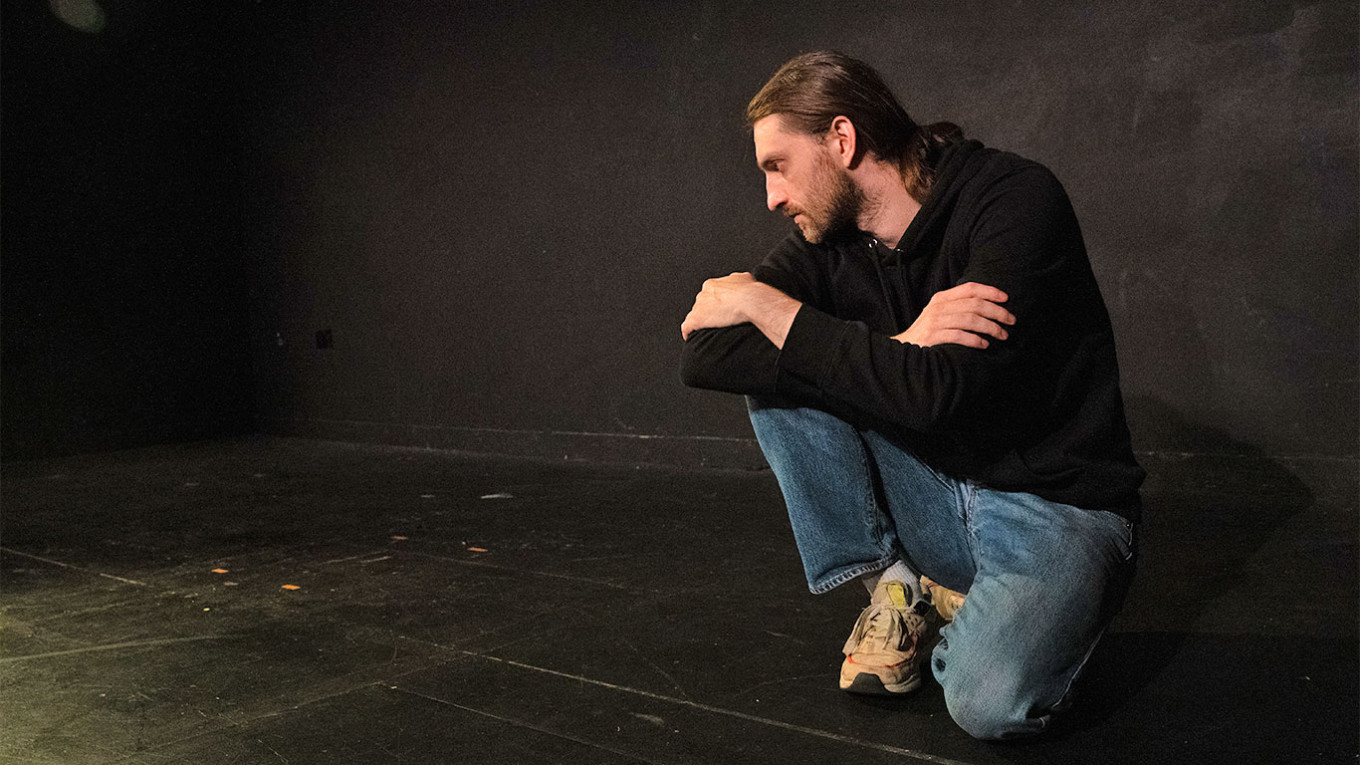Director Ivanka Polchenko described “Vanya is Alive,” her latest play, as “the most important play written in Russian since the start of the war” in an interview with The Moscow Times before its U.K. premiere. “It was written as the invasion was unfolding, so it’s very immediate.”
The play follows Alya, the loving yet delusional mother of Vanya, a mobilized Russian soldier. Its title refers to the daily messages Alya receives, confirming that her son has not been captured or killed — messages she relays to friends, neighbors, and anyone else who will listen. Ultimately, these interactions lead her to jail.
It is a one-person show, with Nikolai Mulakov, a Ukrainian-born Russian whose family is still living on occupied territory, playing all the characters.
The London premiere was the first performance of the English version of the play, which Polchenko translated herself. Last year the play toured the new Russian diaspora cities — Berlin, Baku, Paris, Tel-Aviv — and performing in Russian.
Mulakov memorized the hour-long script despite not speaking much English, working closely with Polchenko to preserve the rhythm of the original.
The staging is unforgiving — one spotlight and the lone actor on the floor space directly in front of the spectators. Mulakov stumbles at first over the English script, but soon finds his footing. He’s a compelling performer, whose deadpan delivery masks reserves of deep emotion and makes moments of humor startling.
He is a good physical comedian, who shines in an episode about the success of a “silent podcast” in today’s Russia: “The host stayed silent. His guest stayed silent. They all stayed silent about important things.”
The play culminates in a poignant sequence of arrest, imprisonment and mental decline. As Alya and her persecutors were all portrayed by Mulakov, there was a risk of losing the audience at this moment. Yet everyone in the audience was hooked: “He had a captivating darkness,” one theater-goer told The Moscow Times. “He was always present without appearing to try — like a flame.”
The script draws attention to the “post-truth” atmosphere of modern Russia, something Polchenko has kept in her careful translation. There are echoes of Orwell, calling even the play’s title into question: “Alya was not threatened with violence/She felt no pain/She was sentenced to fifteen years of absolute freedom.”
Mulakov and Polchenko concede that their work is unlikely to change the minds of those who already support Russia’s war. “People who’ve absorbed ten or more years of propaganda are physiologically incapable of change,” Mulakov told The Moscow Times.
As the play is most likely to be watched by those who already support its message, some critics might see it a self-defeating exercise. Yet the simple, haunting staging could bring “Vanya is Alive” the wider audience it deserves at the Fringe. Props, scenery and elaborate costumes are stripped away, and the absurdism of life in a society shaped by a war it cannot acknowledge is laid bare. Judgment is left to the audience.
So far audiences, Mulakov said, have not included many Ukrainians. After the show in London, amid the resounding applause, someone shouted “Slava Ukraine!” but it wasn’t clear if that was a tribute or a rebuke. Despite the play’s evasion of direct political commentary — and its star’s own background — empathy for people who stayed behind in wartime Russia may be hard for audiences to accept.
"Vanya is Alive" premiered at the Camden People’s Theatre on July 27 and is at the Edinburgh Fringe Aug. 4-12. Tickets are available here.
A Message from The Moscow Times:
Dear readers,
We are facing unprecedented challenges. Russia's Prosecutor General's Office has designated The Moscow Times as an "undesirable" organization, criminalizing our work and putting our staff at risk of prosecution. This follows our earlier unjust labeling as a "foreign agent."
These actions are direct attempts to silence independent journalism in Russia. The authorities claim our work "discredits the decisions of the Russian leadership." We see things differently: we strive to provide accurate, unbiased reporting on Russia.
We, the journalists of The Moscow Times, refuse to be silenced. But to continue our work, we need your help.
Your support, no matter how small, makes a world of difference. If you can, please support us monthly starting from just $2. It's quick to set up, and every contribution makes a significant impact.
By supporting The Moscow Times, you're defending open, independent journalism in the face of repression. Thank you for standing with us.
Remind me later.







